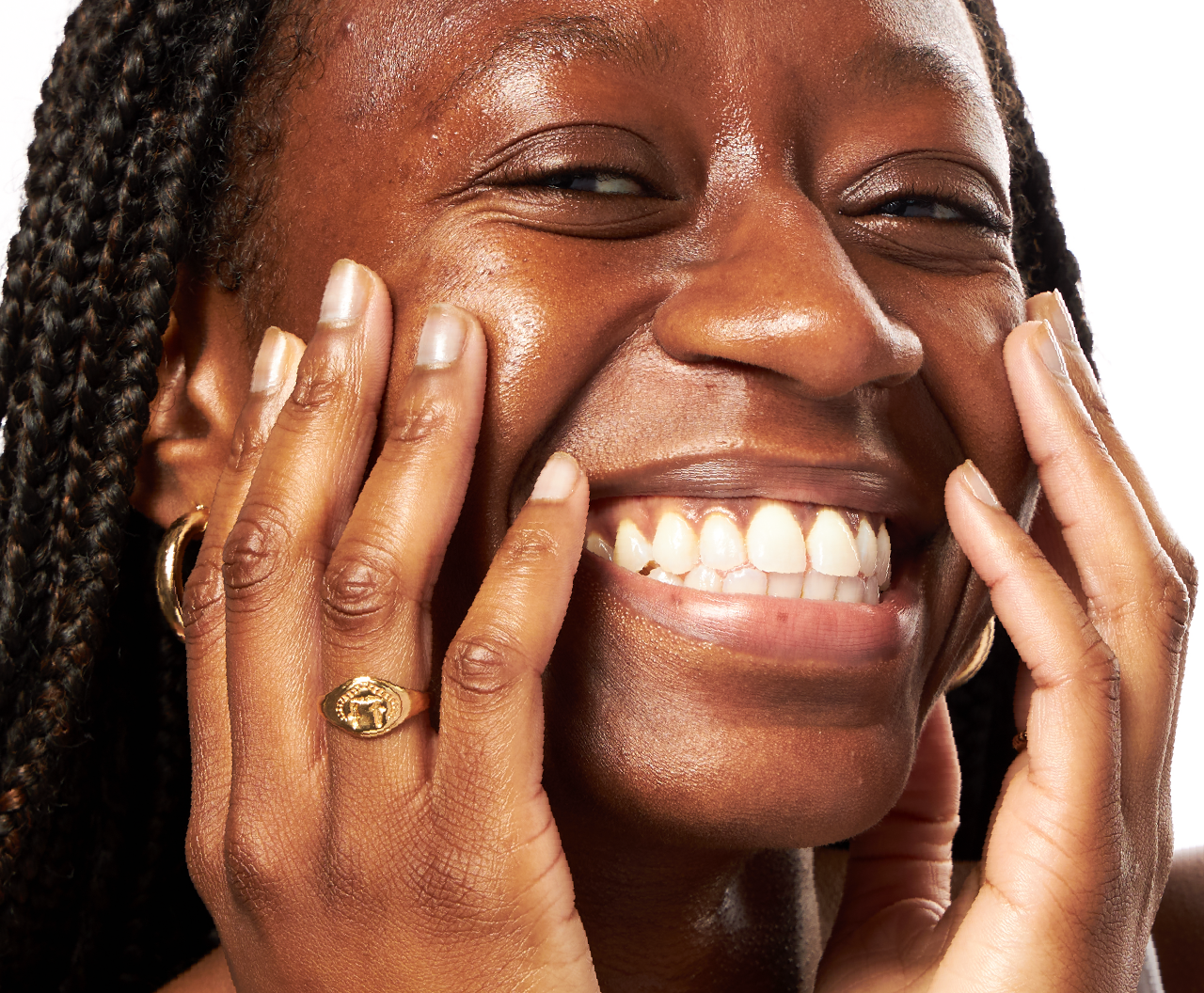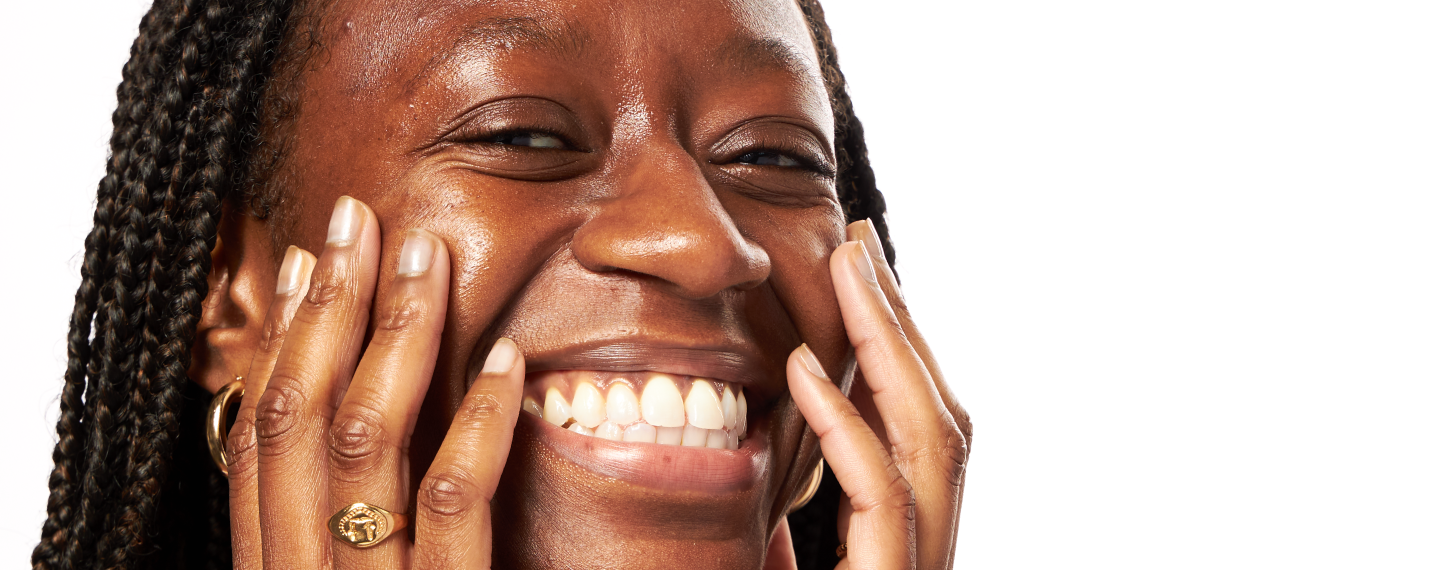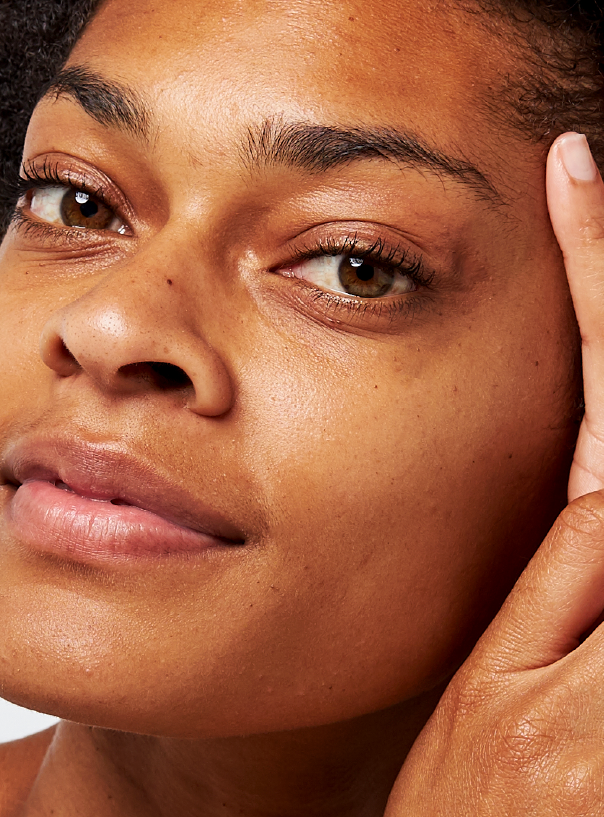Education
How to get clear skin and stop breakouts


SHARE
Education
How to get clear skin and stop breakouts
Medically reviewed by Kristin Hall, FNP
Written by Apostrophe Team
Last updated 11/3/2024
Getting clear skin can be a lifelong battle for some women. For those who thought they’d leave acne struggles behind in high school, adult acne can provide a rude awakening.
Adult acne is more common in women than in men. And with it often comes stress and even depression, as it can impact your self-esteem and your willingness to get out in the world and socialize.
Whether you’ve dealt with acne-prone skin since you hit puberty, or if it’s a new addition to your adult life, you don’t have to live in misery.
There are proven treatment options available. Getting the right one for your skin is a matter of talking to a dermatology provider.
Following their directions and taking steps to follow a consistent skin care routine can ensure healthy, clearer skin for years to come.
What Causes Breakouts
Generally speaking, pimples are caused by oil getting trapped beneath the surface of your skin. That oil, also known as sebum, is nature’s moisturizer (and defense shield).
But, when it can’t exit your hair follicles through your pores, things can get ugly.
Dead skin cells clog your pores and block sebum’s exit. When this happens, bacteria grows and inflammation results. What do you see in the mirror when this happens? A pimple.
Getting a pimple every once in a while is usually not a big deal. As a human, it’s sort of par for the course. Like blisters, warts, and other undesirable skin conditions, pimples happen.
But when you get blemishes often, when they’re painful, or when there are several at a time, it’s more difficult to take in stride.
Treating Breakouts and Acne
When it comes to getting clear skin, your first step is resolving the acne or zits you have. And no, this doesn’t involve picking at your face or popping pimples — both of which can worsen things more than they help.
There are several options for acne treatment — both those available over the counter and those you need a prescription for.
Talking with a healthcare professional or dermatologist about your skin condition(s) can help ensure you’re not wasting money, while pursuing treatment options best suited for your skin type and acne severity.
Here are four common options available for clearing acne-prone skin:
Oral contraceptives: Believe it or not, birth control pills can regulate hormone fluctuations that can worsen acne breakouts.
Benzoyl peroxide: Available over-the-counter, benzoyl peroxide is a drying agent. It can be too drying for some skin types, however.
Retinoids: Many retinoids, such as tretinoin, are available with a prescription. They’re commonly prescribed (and known to be effective) for moderate to severe acne.
Antibiotics: Oral antibiotics can reduce the impact of acne bacteria on your breakouts, and may be prescribed in conjunction with a topical retinoid.
Preventing Breakouts
The above acne treatments will also work to prevent future breakouts, but you need to do your part too. That involves:
Washing your face. Wash your face twice a day or when it’s particularly dirty or sweaty — but not more than needed. Frequent washing can irritate your skin and actually worsen it.
Don’t pick or pop your acne spots. It may be hard to keep your hands off, but picking and touching your pimples can spread bacteria and worsen your acne.
Wash your sheets, pillowcases and make-up brushes. It’s not excessive to change your pillowcase several times a week — the American Academy of Dermatology actually recommends it.
Manage stress. Stress can worsen breakouts, so eat well, exercise, get plenty of rest, and participate in enjoyable activities that reduce the burden of stress in your life.
Stop smoking. If you smoke cigarettes, acne-prevention is just one more reason to quit.
Use skin-care products (such as cleansers and moisturizers) and cosmetics that are oil-free and non-comedogenic. If you wear make-up and apply skin care products, make sure they’re not making your acne worse.
Get help. If you haven’t already, talking with a dermatology provider about your skin will help you determine how best to care for it, reduce or eliminate breakouts, and have clear, healthy skin for years to come.
References
Like what you just read? Sign up for our email list to get the scoop on skincare science delivered straight to your inbox.

Deep Dives
A dermatologist shares his thoughts on the recent studies about benzoyl peroxide and benzene.
Read More
Education
What is milia?
What is milia? Today, we’re jumping into one type of bump that you may have heard about most commonly in infants — milia.
Read More
Education
Best moisturizer for acne-prone skin
If you have combination acne-prone skin, figuring out which moisturizer is best for your skin might be tough. In this guide, we break down the best moisturizer for combination, acne-prone skin.
Read More
